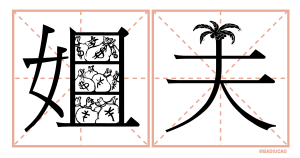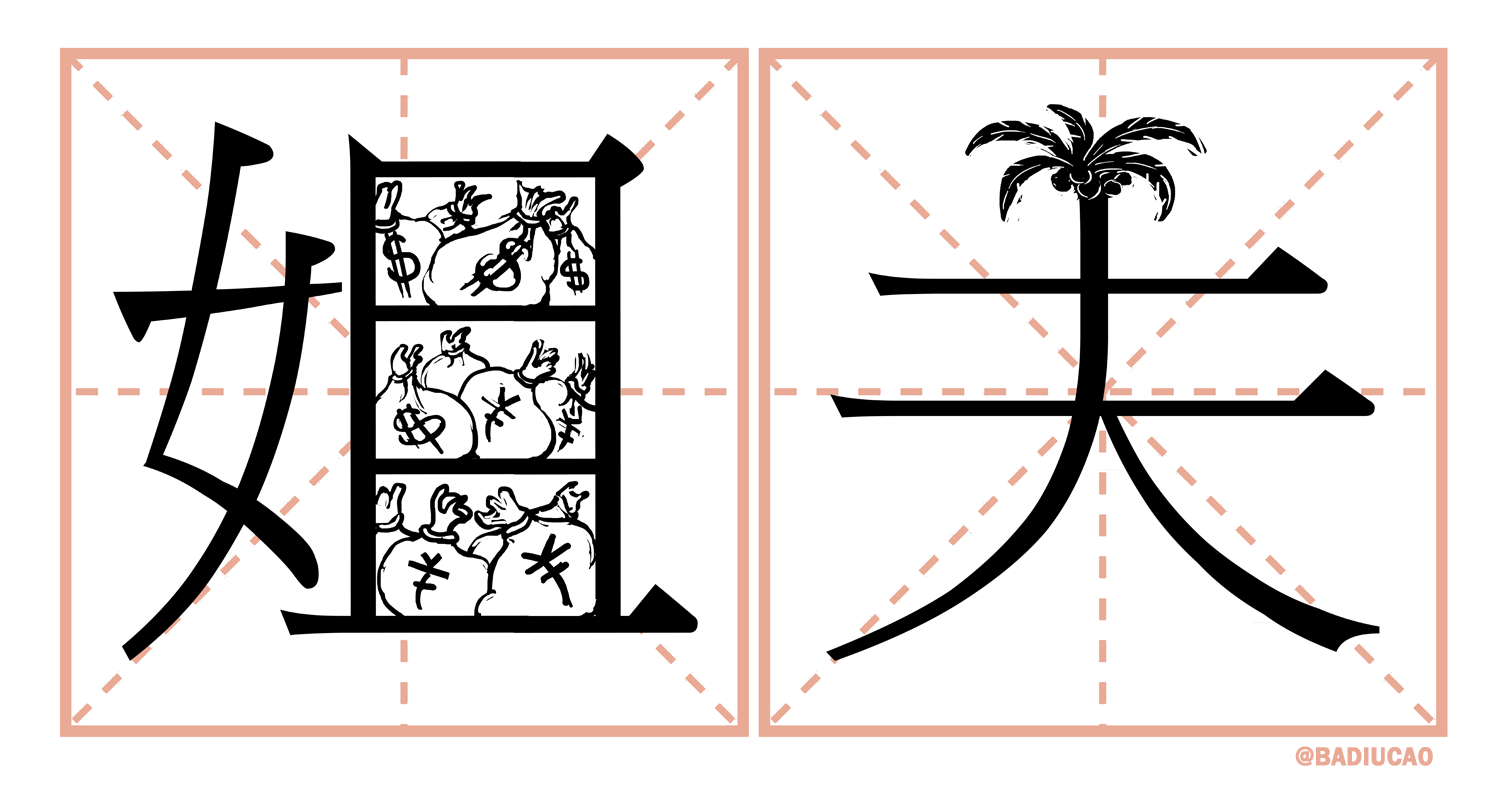The Word of the Week comes from the Grass-Mud Horse Lexicon, a glossary of terms created by Chinese netizens or encountered in online political discussions. These are the words of China’s online “resistance discourse,” used to mock and subvert the official language around censorship and political correctness.
 The new Lexicon home page lets you browse by categories like Party and State, Society and Culture, and Resistance Discourse. It’s easier than ever to discover new words and learn the meaning behind them. We welcome reader feedback on the redesign.
The new Lexicon home page lets you browse by categories like Party and State, Society and Culture, and Resistance Discourse. It’s easier than ever to discover new words and learn the meaning behind them. We welcome reader feedback on the redesign.

“Brother-in-law” means money bags in far-off, tropical places. (Artist: Badiucao 巴丢草)
brother-in-law (older sister’s husband)
jiěfu 姐夫
Deng Jiagui, brother-in-law of President Xi Jinping, and one of the shell company investors named in the Panama Papers leak; shorthand for wealthy relatives of top officials.
Real estate mogul Deng Jiagui is married to Xi Jinping’s older sister, Qi Qiaoqiao. Deng’s offshore assets were named in documents from the Panamanian law firm Mossack Fonseca, leaked by the International Consortium of Investigative Journalists on April 4, 2016. Deng acquired several companies in the British Virgin Islands; the first, from 2004, was no longer registered in the BVI as of 2007, while two Deng came to control in 2009 were inactive as of Xi Jinping’s accession to office in 2012. Deng’s financial assets had previously been exposed in a 2012 report by Bloomberg that triggered a backlash against the media company by the Chinese authorities, and in a 2014 ICIJ investigation into offshore holdings.
While holding assets in offshore companies is legal, they may be used to hide graft or avoid taxes. This is exactly what Chinese netizens suspect of Deng and other well-connected members of the wealthy elite. Within two days of the publication of the Panama Papers, a “brother-in-law” topic page (titled #姐夫#) appeared on Weibo after it became the fifth most-searched term on the site. Around 350,000 read the page before it disappeared. A Weibo search on April 14, 2016 for “brother-in-law” only returns three results, none of them related to Deng, but FreeWeibo has archived a few deleted Weibo posts about the brother-in-law people care about the most:
Yingshipin (@鹰视频): You don’t have to be an official to get rich, and you don’t have to get rich to be an official! You can just be a brother-in-law. (April 9, 2016)
当官就不要发财,发财就不要当官!可以当姐夫 [Chinese]
The question-and-answer site Zhihu also enjoyed a lively discussion of the “brother-in-law” hiding his wealth for a time, though topic pages containing the word “brother-in-law” were also eventually removed.
See also naked official.
![]() Can’t get enough of subversive Chinese netspeak? Check out “Decoding the Chinese Internet: A Glossary of Political Slang,” our ebook of dozens of new terms and classic catchphrases, presented in a new, image-rich format. Available for pay-what-you-want (including nothing). All proceeds support CDT.
Can’t get enough of subversive Chinese netspeak? Check out “Decoding the Chinese Internet: A Glossary of Political Slang,” our ebook of dozens of new terms and classic catchphrases, presented in a new, image-rich format. Available for pay-what-you-want (including nothing). All proceeds support CDT.








